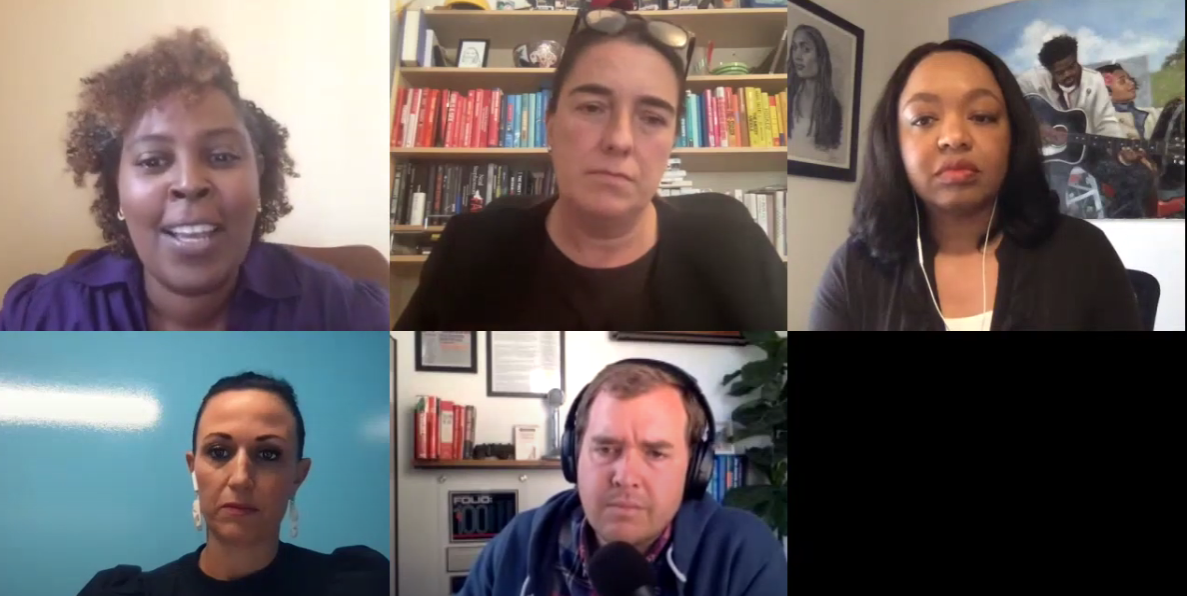2020 may go down as a landmark in shifting thinking about companies’ responsibilities to society. But the reality is that changes were taking place over years before a pandemic and generational call for racial justice arrived.
This can set the stage for long-term change, if companies take serious the newfound energy that was accelerated in a crisis.
For 50 years, a seminal text in this discussion was a theory from economist Milton Friedman that defined a corporation’s social responsibility as belonging to its shareholders and, ultimately, its profits. Pushed by the civic inclination of its leaders and urged to do more by its employees and customers, companies showed more energy toward social responsibility in the ensuing years.
Then, in 2019, a new text put a flag in the ground toward changing this view. In their own letter, 181 top CEOs that make up the Business Roundtable redefined the purpose of a corporation toward stakeholders. Shareholders moved to the bottom of a list that centered the customers, employees, suppliers, communities. In other words: The responsibility was to all of the people who are affected by a company’s work.
So when 2020 arrived, this foundation was in place. Yet it still felt like a big shift when companies made big-dollar commitments to digital and racial equity and denying contributions to campaigns seen as violating democracy, while adding roles and reforming culture in significant ways. By the time the 50th anniversary of Friedman’s essay rolled around in the fall, it was declared dead in a Forbes commentary.
It was a time of VUCA, as Caroline Barlerin put it: volatility, uncertainty, complexity and ambiguity. But it was also a time of new energy. All companies have values, but 2020 brought them to the center of what a company does.
2020 was a time of volatility, uncertainty, complexity and ambiguity — but also new energy.
“I think 2020 was really a time when we shined a light on the importance corporate social responsibility, social impact and social innovation not just being this bolt-on thing over there, but really core to the company,” said Barlerin, the CEO of San Francisco-based Platypus Advisors and a former head of social innovation at tech companies like Twitter and HP. “I think it reinvigorated a lot of CEOs to think more seriously about the role of purpose for their company, and that adjustment and flexibility is just going to be required more and more going forward.”
Barlerin was speaking this month on a panel featuring social impact leaders from leading tech companies at Introduced by Technical.ly, the annual conference on building better companies that’s part of Philly Tech Week presented by Comcast.
This clarity led to new action that extended beyond impact teams. At software development community GitHub, Head of Social Impact Admas Kanyagia said employees gave more for social good than ever before. And a Madison, Wisconsin-based American Family Insurance, a $105 million loan fund for new programs to support artists and entrepreneurs came alongside employee activism.
“For us it was not only urgency, but, how do we think differently about how we support our communities?” said American Family Social Impact Investment Director Nyra Jordan.

At ComcastNBC Universal, a $100 million commitment to fight racial inequity and an initiative to help BIPOC-founded small businesses called RISE involved folks from across the company working together. Gwyneth Gaul, senior director for strategic impact and community partnerships at the Philly-based comms company, said this work became “business critical.”
“It was a moment where I saw collaboration and commitment in a way I have never seen in corporate philanthropy before,” Gaul said. “We had business units from all different shapes and sizes coming together for one common cause to really drive impact. I think that allowed us to get real focus, to engage our people and I think it will enable us to continue this movement beyond 2020 so we can continue to drive change.”
Along with reflecting key parts of the business, speaking out and stepping up are key to how a business shows up for its people. After the killings of George Floyd, Ahmaud Arbery and Breonna Taylor, leaders had to address the pain, even if that meant creating space for listening and dialogue.
“If we’re saying we want people to bring all of themselves to work it has to be all of themselves to work, and that means all of the things that when they walk out of those doors or shut off the Zoom that were acknowledging things that impact you that I may not understand or know, but I get it and you are a valued employee, so I need to make sure that I’m aware and I acknowledge that,” Jordan said.
Employees want a voice. This was on display when Chicago-based software company Basecamp saw one-third of its team exit after a culture shift that banned political talk at work and dissolved diversity committees.
“Rather than clamping down and saying, ‘We don’t want to hear it,’ I think there’s a real opportunity to need to hear it more,” Barlerin said. “If you don’t design company policies to optimize for justice, you’re going to reinforce systemic injustice.”
It’s not just a matter of social responsibility. Barlerin said attracting, retaining and developing top talent will require putting purpose at the center in a generation that was raised with service as a part of what they do. And consumers are increasingly conscious of the brands they’re supporting with their buying power.
If you don't design company policies to optimize for justice, you're going to reinforce systemic injustice.
“You can vote with your feet and you can vote with your wallet,” said Barlerin.
And this work doesn’t just mean pulling internal teams together. As the stakeholder capitalism letter made clear, work must go to all of those served by a company. Github offers a platform where software developers build new tools. With 65 million technologists, it’s a thriving part of the open source community. They must serve those who are using the platform and sharing freely, as well.
“We’re not just here only for our customers,” said Kanyagia. “We’re here for this larger mission. We’re here for this larger community and this community that we want to be inclusive of everyone, including those who are the least resourced.”
To be sure, there’s a decision point when a company picks what it wants to focus on. Plenty will have opinions about how it should direct resources, and what issues should get the most attention. The cascading crises of 2020 clarified where the responses were directed. But given the scope of need and depth of the history behind these issues, panelists said it remained important for businesses to reflect on what they’re best positioned to do.
And it helps to seek out others. The work also meant partnering with other companies and organizations.
“When we commit to making a positive impact in areas that are aligned to our core beliefs and our core values then we can have influence,” Jordan said. “If we are partner across sectors in this work, it’s that collective momentum where you get to see the potential for large scale change because everybody is working towards these issues together.”
There’s a lot that was built this year that can remain going forward, if leaders commit to keep deepening community ties and stick with commitments going forward.
“Let’s not make 2020 a moment,” Gaul said. “It’s so easy to say this was a moment in time we all came together and then we went back to the way things were. Let’s not do that. Let’s make sure this moment extends to a movement and continues for that long sustained change we’re all deeply committed to.”







